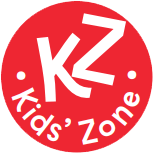RELIGIOn and worldviews
"Despite the small space RE occupies in the curriculum, it is huge, encompassing nothing less than humanity’s most searching questions, its deepest hopes, the history of the world’s beliefs and their diverse manifestation in the modern world." Natre 2021
"Teaching Religion and Worldviews gives the children the opportunity to have courageous conversations about themselves, others and their beliefs; it helps us to recognise that beliefs are different. It is such an important part of the curriculum if we want a harmonious and cohesive community." MV Teacher
"I am a British Indian and I celebrate Diwali, Navratri and Holi because my religion is Hindu." - Year 2 Pupil
"I am Christian, so I celebrate Easter and Christmas and I go to church." - MV Pupil
"We spoke about how we celebrate Christian festivals, but we don’t go to church, but her grandma does." - MV Parent
"I am Muslim like my mum and dad but not all of my family is." - Year 4 Pupil
"I love learning about all of my friend’s cultures and religions. I didn’t realise that we are all so different but still the same." - Year 5 Pupil
"F has told us all about the things he's been learning to do with Diwali and Eid. Me and his dad were so impressed with what he has learnt and even managed to teach us a thing or two. Again, it just shows how much he enjoys his lessons." - Year 1 Parent
"Teaching RW at MV is so important. We want all of our children to understand about different cultures and religions. Our aim is to ensure that the children are respectful and knowledgeable to ensure a sense of community." - MV Governor
Good RE teaches about a range of religious and non-religious worldviews, enhancing understanding and cultivating mutual respect and tolerance. It offers time and space, allowing students to reflect on their own thoughts, providing opportunities to raise questions for themselves and of others. It encourages them to think about their experiences and how they respond to others and the world around them. Ultimately, it has the potential to contribute towards community cohesion and the shaping of society for a better future.
Quote from the 'Believing and Belonging' agreed syllabus - Suzanne Bridges, Methodist member, Kirklees SACRE
Religion and World Views in EYFS
Religion and World Views knowledge, understanding and skill development in EYFS is taught under the ‘Understanding the World’ section of Development Matters and links to many other areas too. Religion and World Views are taught by exploring and playing in purposeful well thought out areas of provision, through active learning and through creating and thinking critically.
In EYFS the children:
- Listen to stories, songs and texts from around the world and make comments and answer questions.
- Develop their own narratives in relation to stories they hear from different traditions.
- Understand that they can expect others to treat their needs, views, cultures and beliefs with respect
- Notice differences between people.
- Continue developing positive attitudes about the differences between people.
- Recognise that people have different beliefs and celebrate special times in different ways.
The lessons provide children with a solid base to allow them to access the ‘Believing and Belonging’ agreed syllabus which has been adopted by all schools in West Yorkshire.
At Morley Victoria our vision is to develop children's skills of enquiry, reasoned argument and reflection. Religion and Worldviews (RW) contributes dynamically to children and young people’s education in school by provoking challenging questions about meaning and purpose in life, beliefs about God, ultimate reality, issues of right and wrong and what it means to be human. Our world is enriched by a wide and profound diversity of cultures and beliefs. We as human beings are strengthened and empowered by learning from each other. Engaging and stimulating learning around Religious and Worldviews helps to nurture informed and resilient responses to misunderstanding, stereotyping and division. It offers a place of integrity and security within which difficult or ‘risky’ questions can be tackled within a safe but challenging context.
Religion and Worldviews education is provided by following 'Believing and Belonging', the agreed syllabus for Religious Education in West Yorkshire. The syllabus requires schools to focus on specific core religions at each key stage: Christianity and Islam from KS1, adding Sikhism and Judaism at KS2 and then Buddhism and Hinduism at KS3. In addition, other (non-religious) worldviews must be included as part of the curriculum at each key stage. Believing and belonging contains two key elements, first it is about beliefs and values. It aims to develop pupils’ understanding of world faiths and other beliefs, exploring their commonality and diversity. Secondly, it is about ‘belonging’. It aims to nurture pupils’ awareness of the treasury of diversity as well as sensitivity to the questions and challenges that different views and cultures can present. Through the use of the Syllabus, we use RW to enable our pupils to gain insights and knowledge of other religions, faiths, customs and beliefs in order to equip them as responsible members in our society. RW plays an important role in preparing pupils for their future and for lifelong learning.
Aims in the RW curriculum:
There are three broad aims, each subdivided into two areas. A balance of these should be included in any curriculum plan at every key stage. Pupils and students should:
- Investigate the beliefs and practices of religions and other world views;
- Investigate how religions and other world views address questions of meaning, purpose & value;
- Investigate how religions and other world views influence morality, identity and diversity.
An emphasis is given to making work meaningful and adopting a cross-curricular approach wherever possible making particular links to the PSHE curriculum. RW is allocated the equivalent of a session each week, this may be organised differently in each year group and dependent on the curriculum that is being taught. In addition to this, there will be assemblies and class discussions as well as the children being taken on visits to see other places of worship. Visiting groups and workshops also help to provide first-hand learning experiences.
Year Group Learning Objectives
EYFS
- Where do we live and who lives there?
- How do Christians celebrate Christmas?
- What makes a good helper?
- What can we see in our wonderful world?
- Who and what are special to us?
Year 1
- Which books and stories are special?
- How do we celebrate special events?
- What does it mean to belong to a church or mosque?
Year 2
- How is new life welcomed?
- How can we make good choices?
- How and why do people pray?
Year 3
- How do Jews remember God’s covenant with Abraham and Moses?
- What do Christians believe about a good life?
- What do the creation stories tell us?
Year 4
- How are important events remembered?
- What faiths are shared in our country?
- How do the Five Pillars guide Muslims?
Year 5
- Why are some journeys and places special?
- What values are shown in codes for living?
- Should we forgive others?
Year 6
- How do Sikhs show commitment?
- How does growing up bring responsibilities?
- How do Jews remember the Kings and Prophets in worship and life?
Parents have the right to withdraw children from Religious Education if they feel they need to. Please contact the Head Teacher to discuss this further.
Examples of Work





























